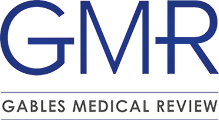
The Role of Mediation Services in Resolving Complex Insurance Disputes
When insurance disputes arise, they can feel overwhelming—bogging us down with paperwork, delays, and rising costs. Whether it’s a claim denial or disagreement over policy interpretation, the process can be both frustrating and expensive. That’s where mediation services come in. Rather than jumping straight into litigation, we’ve found that working through mediation offers a fair, efficient, and far less stressful way to resolve conflicts. At Gables Medical Review, we’re committed to making the insurance claim resolution process smoother, more collaborative, and focused on what really matters—achieving a fair outcome and preserving important relationships through patient advocacy and thoughtful negotiation.
Understanding Mediation Services in Insurance Disputes
Mediation services serve as a bridge between conflicting parties, offering a platform to find common ground without resorting to litigation. Unlike a courtroom battle, mediation is a voluntary process where a neutral third party—the mediator—facilitates communication and negotiation. It allows us to resolve insurance claim disputes while maintaining confidentiality, control over outcomes, and a sense of cooperation rather than confrontation.

What Makes Mediation Different?
The essence of mediation lies in its collaborative nature. It is not about winning or losing, but about finding a solution that satisfies all parties involved. Here are some key aspects that differentiate mediation from traditional legal proceedings:
- Voluntary Participation: All parties must agree to participate in mediation, which fosters a cooperative atmosphere.
- Confidentiality: Unlike court cases, mediation discussions are private, encouraging honest dialogue.
- Control Over Outcome: The parties involved have more control over the final agreement, as opposed to a judge or jury decision.
The Benefits of Mediation Over Legal Battles
The advantages of mediation over traditional litigation in insurance disputes are numerous. Let’s delve into some of the most significant benefits:
Cost Savings
Mediation is generally far less expensive than going to court. Legal battles involve substantial attorney fees, court costs, and other expenses that can quickly add up. In contrast, mediation is typically quicker and involves fewer procedural costs, making it a cost-effective option for resolving disputes.
Faster Resolutions
Time is often of the essence in insurance disputes. Litigation can drag on for months or even years, whereas mediation can often be completed in a matter of weeks. This rapid resolution can be particularly beneficial in healthcare-related disputes where timely settlements are crucial for patient care and satisfaction.
Improved Provider-Patient Relationships
In the healthcare sector, maintaining a positive relationship between providers and patients is paramount. Litigation can strain these relationships, leading to long-term resentment. Mediation, on the other hand, promotes open communication and understanding, helping to preserve the provider-patient relationship even in the face of disagreements.
The Process of Mediation in Insurance Claim Resolution
Understanding how mediation works in practice is crucial for those considering this route for insurance claim resolution. Here’s a step-by-step overview of the typical mediation process:
- Initiation: Either party can propose mediation. Once both parties agree, a mediator is selected.
- Preparation: The mediator gathers information from both parties to understand the issues at hand.
- Session Commencement: During the mediation session, each party presents their perspective.
- Negotiation: The mediator facilitates discussion, encouraging compromise and collaboration.
- Resolution: If an agreement is reached, the mediator drafts a settlement agreement.
The Role of Patient Advocacy in Mediation
Patient advocacy plays a critical role in healthcare dispute mediation. Advocates ensure that patients’ rights and interests are represented throughout the mediation process. This representation is essential, particularly in complex cases where patients may feel overwhelmed by the intricacies of insurance policies and legal jargon.
Why Choose Mediation for Healthcare Dispute Mediation?
Healthcare disputes often involve sensitive issues and require a nuanced approach. Mediation offers a unique platform to address these concerns in a manner that is respectful, confidential, and tailored to the needs of all parties involved. Here are a few reasons why mediation is particularly suited for healthcare disputes:
Focus on Solutions
Mediation shifts the focus from assigning blame to finding solutions. This solution-oriented approach is ideal for healthcare disputes, where the primary goal is to ensure the best possible outcome for patients and providers alike.
Flexibility and Creativity
The informal nature of mediation allows for flexible and creative solutions that might not be possible in a courtroom setting. This flexibility is crucial in healthcare, where unique circumstances often require tailored solutions.
Preservation of Relationships
In healthcare, maintaining positive relationships is essential for ongoing care and collaboration. Mediation fosters a spirit of cooperation and understanding, helping to preserve professional relationships even amidst disputes.
At Gables Medical Review, we’ve seen mediation services transform how insurance claim resolution is handled. Our goal isn’t just to settle disputes—it’s to empower both patients and providers to resolve those disputes with dignity and fairness. We believe that by choosing mediation, we can achieve not just quicker resolutions and lower costs, but also stronger relationships and better healthcare outcomes.
If you’re facing a complex insurance dispute, don’t let it spiral into a lengthy legal battle. There’s a better way forward. Get in touch with us today to learn more about how our mediation services, backed by patient advocacy and a deep understanding of the healthcare system, can help you find lasting solutions through dialogue—not conflict.
Let’s bring resolution, respect, and results back to the table—together.

